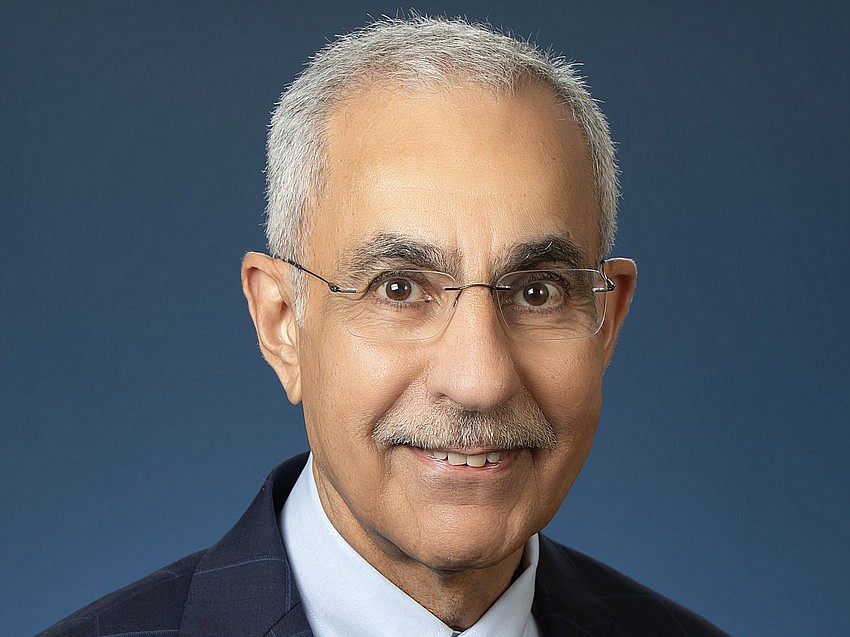
The Jacksonville Jaguars’ “Stadium of the Future” would receive an increased portion of bed tax revenue as part of the proposed deal between the city of Jacksonville and the team to build and maintain the facility, City Council President Ron Salem said.
During a May 16 appearance on the WJCT Public Media talk show First Coast Connect, Salem said the deal calls for the stadium to receive an entire pot of bed tax revenue that currently is divided for EverBank Stadium, 121 Financial Baseball park and VyStar Veterans Memorial Stadium maintenance.

Currently, revenue generated by Duval County’s 6% bed tax on hotel rooms and some short-term rental properties is equally divided three ways, with 2% dedicated to tourism development, 2% toward debt service for construction of the existing stadium and 2% to facility maintenance of the three sports complex facilities.
“Instead of going to the ballpark and the arena, the full 2% will go to the stadium,” Salem said.
The change would channel about $10 million in annual revenue solely to the stadium, based on current tax collections. That’s one-third of the $30 million in annual revenue generated by the bed tax, which is technically known as the transient accommodations tax.
Phillip Perry, chief communications officer for the city, said about 70% of the sports complex maintenance revenue has been allocated to the stadium, with the rest split between the arena and ballpark. The city plans to shift funding for those two facilities to the Capital Improvement Plan.
“The funding they were receiving from their share of the bed tax was not sufficient and they need to be funded adequately from the CIP,” Perry said in an email. “The amount will vary each year depending on the maintenance needs. We are still working through that figure for the proposed 2024-2025 CIP.”
The city didn’t immediately answer questions about how any lost revenue for the arena and 121 Financial Ballpark would be replaced.
The Jacksonville Jumbo Shrimp declined to comment. In 2021, the city and the minor-league baseball team agreed to a lease extension that would keep the team at the ballpark until 2043.
The ballpark is undergoing a $31.8 million upgrade to meet Major League Baseball Triple-A standards. Called Project Next, the plan includes a relocated entrance, a new multilevel building in right field and a front porch and center field plaza to welcome fans. In 2023, Council added $3 million to the CIP and $4 million to the future capital budget to help fund the renovation.
ASM Global manages both the ballpark and arena, according to the city’s website.
Salem said he hadn’t heard from the Jacksonville Jumbo Shrimp or ASM Global about the issue, “but I’m sure it will be a topic of discussion.”
In 2009, the city enacted Ordinance 2009-817-E providing 2% of revenue from what were then called transient rental taxes to the Sports Complex Capital Maintenance Enterprise Fund. That fund was to be used to “construct, extend, enlarge, remodel, repair, improve or maintain the football stadium, baseball park and arena, which at the time were called Jacksonville Municipal Stadium, Jacksonville Baseball Grounds and Jacksonville Veterans Memorial Arena.
The ordinance went into effect in October 2010.
The proposed stadium deal calls for the city and team to split the construction costs of the $1.25 billion stadium, with the city contributing an additional $150 million for deferred maintenance and capital improvements.

In a May 14 presentation to the Council on the proposed stadium deal, city negotiator Mike Weinstein said the funding mechanism for the city’s contribution involved reversing a plan enacted by Mayor Lenny Curry’s administration to cut short a voter-approved half-penny sales tax increase that was set to expire in 2030.
Curry moved projects that were funded in the Better Jacksonville Plan, which was funded by the tax increase, to the city’s Capital Improvement Plan with the goal of sunsetting the tax increase in 2026.
His goal was to launch an early start of another half-cent sales tax increase that was designed to immediately follow the Better Jacksonville Plan and was designated to fill a deficit in city pension funds.
Weinstein proposes moving projects back under the Better Jacksonville Plan through 2030 and starting the other tax increase on schedule. The city would then put its contribution to the stadium in the Capital Improvement Plan.
Weinstein told Council members that Mayor Donna Deegan’s office would bring forth additional funding mechanisms as the Council began examining the deal.